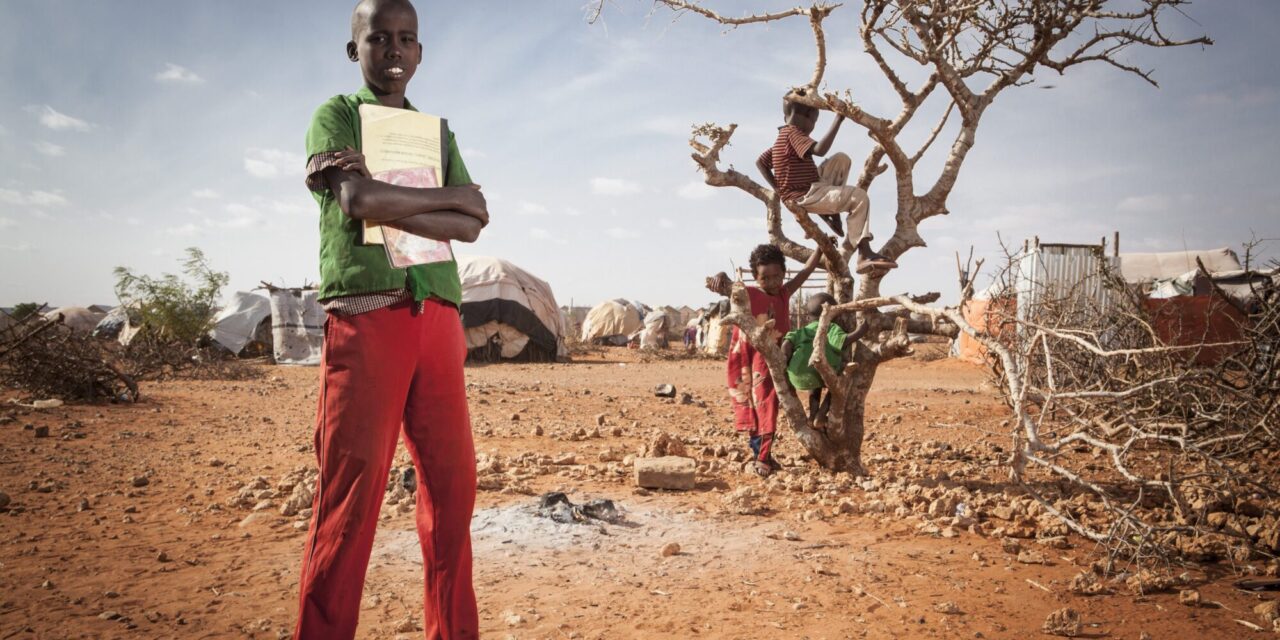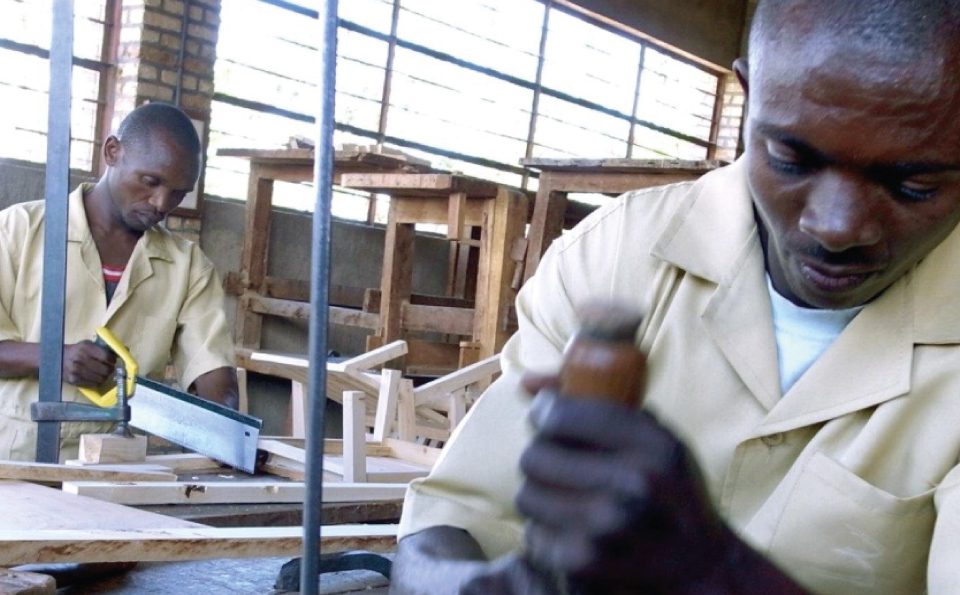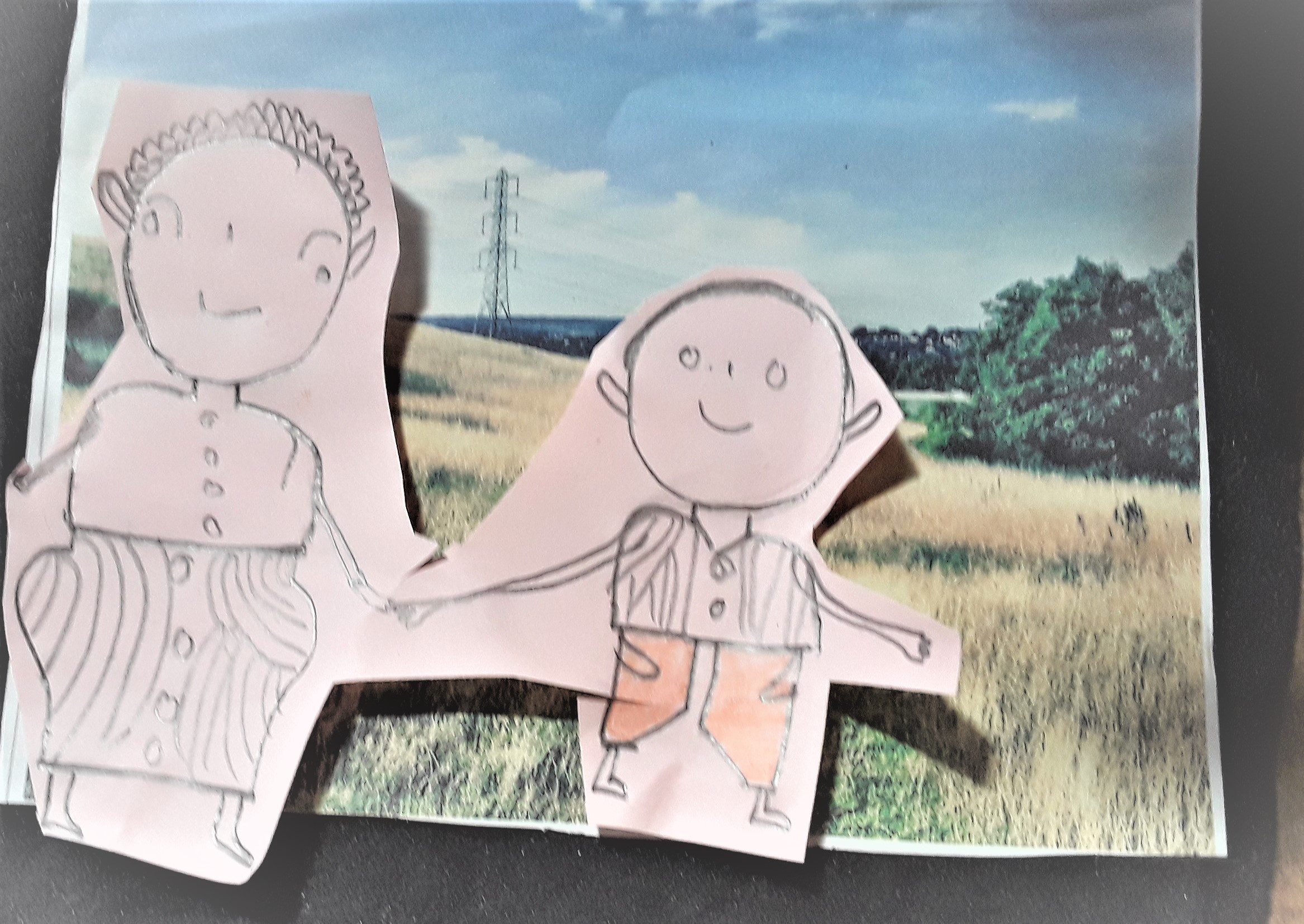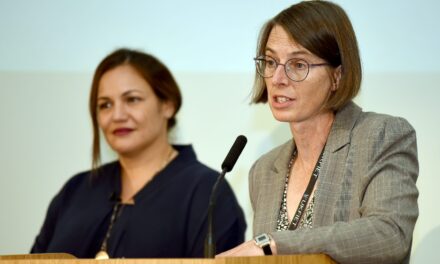By Emma Wagner, Education in Emergencies, Policy & Advocacy Adviser, Save the Children.
Violent conflicts and displacement jeopardise not only the Sustainable Development Goal on education (SDG 4) but also risk the progress towards other goals. UNHCR’s new annual education report – Stepping Up – shows that despite some progress, 3.7 million refugees are still not in school.
‘Inclusive education systems’ and ‘system responses to conflict and crises’ being major themes of this years’ UKFIET conference, this blog sets out some of the challenges in education for refugees and the forthcoming opportunity of the Global Refugee Forum, 17-18 December 2019.
Refugee enrolment and completion rates have remained close to stagnant for years. The global refugee enrolment rate in primary school is up from 61% in 2017 to 63% 2018, while secondary level enrolment has risen from just 23% to 24%.
There are multiple causes. Frequently a new large refugee crisis, such as in Bangladesh, surpasses positive developments in refugee education elsewhere by increasing the numbers of refugee children who do not have access to education. And despite some improvement, education remains the poor cousin of an underfunded and overstretched humanitarian system. The proportion of humanitarian funding for education has been stuck at 2% for years.
Inclusive national education systems
One of the most successful and sustainable strategies for refugee enrolment and improved learning outcomes is when refugee hosting-states adopt inclusive formal education systems that allow refugees the same access as the host population. Sadly, refugee crises tend to be long-lasting so integrating refugee boys and girls into the national education systems as soon as possible, is the most effective way to meet their need for relevant, quality education that is recognised.
Some of the countries that have made significant recent gains are Uganda, Chad, Ethiopia and Turkey. These countries have changed their policies in line with the responsibility sharing principle in the Global Compact on Refugees, but as 86% of refugees live in low- and middle-income countries that already struggle to meet the education needs of the most marginalised host population, they desperately need more international investment to fulfil their inclusive policies and meet the gaps in provision.
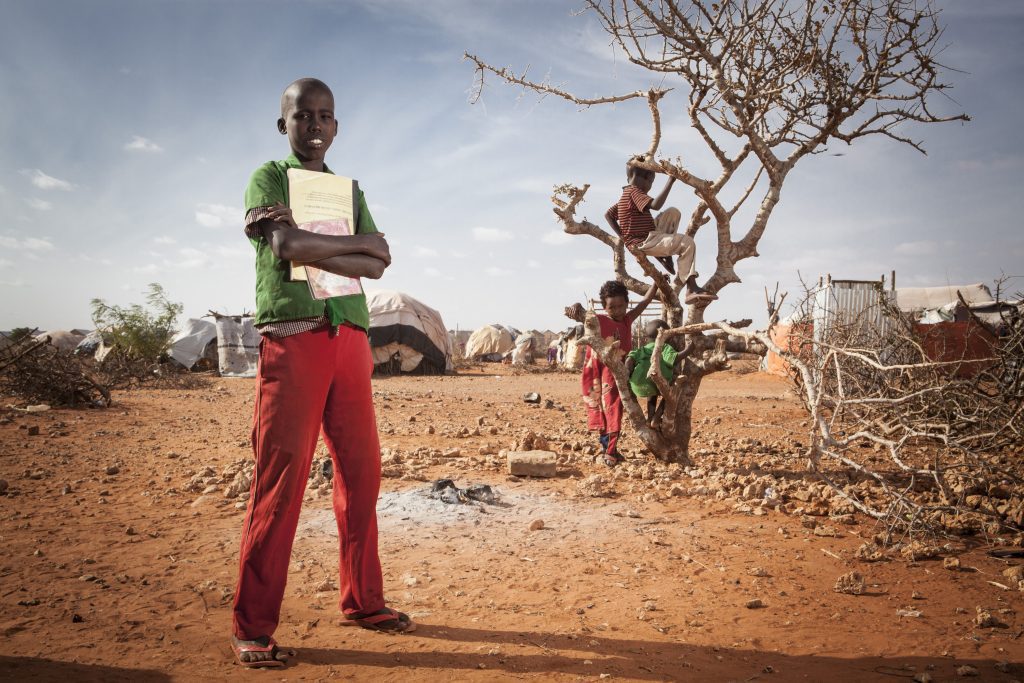
Ibrahim Hassan Ahmed, 14, is enrolled in Save the Children’s Alternative Basic Education programme (ABE) for Somali refugees in Heleweyn camp, Dollo Ado Ethiopia. © Jonathan Hyams/Save the Children)
Even when refugee-hosting countries have an inclusive education policy for refugees is it ‘truly’ inclusive?
There are many other barriers which prevent refugees from learning. Teachers need to be trained to teach refugee children and youth with complex learning needs, remedial language classes may be required, discriminatory practices need to be removed at all levels and school infrastructure has to be scaled up.
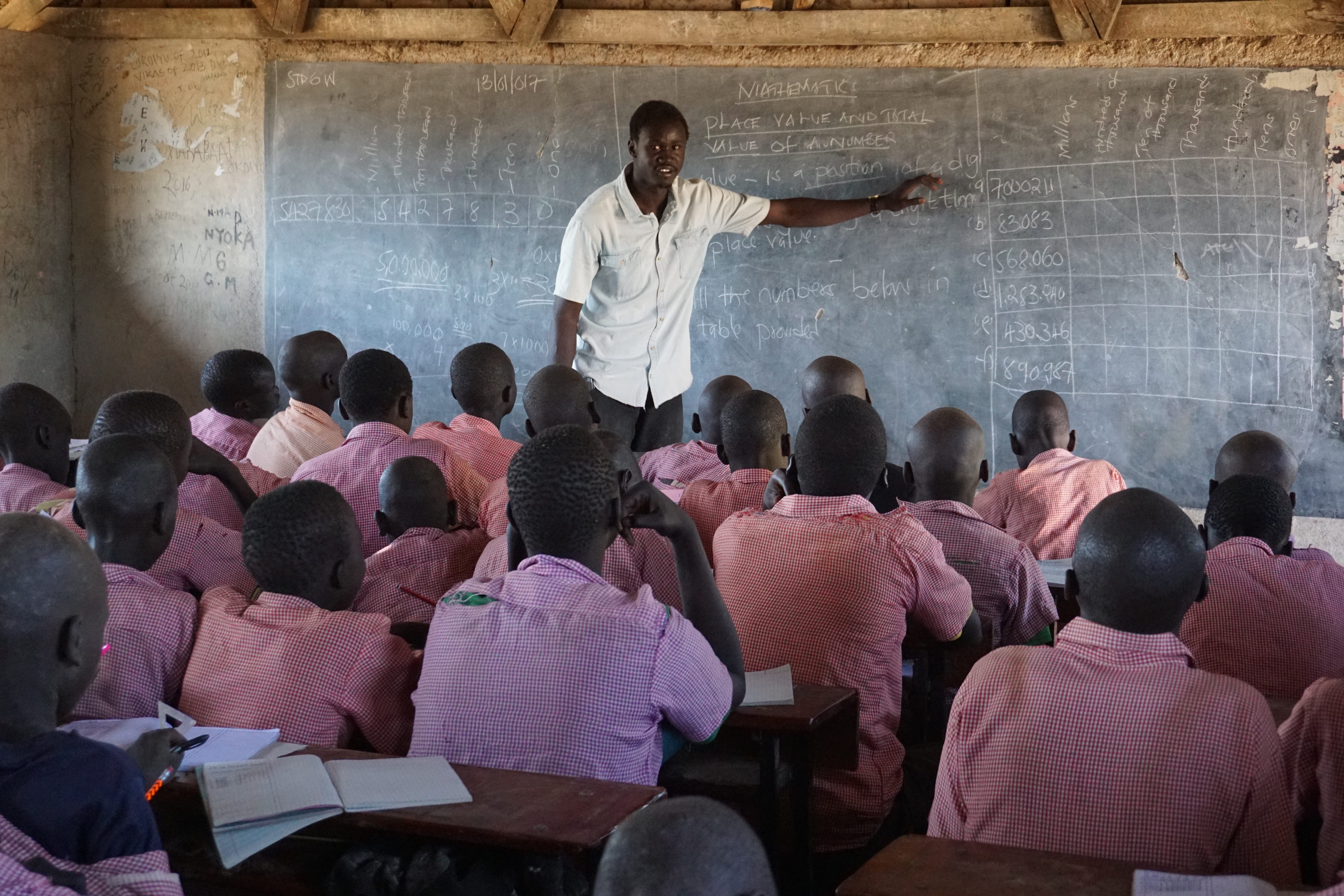
Teachers in Crisis Contexts (TiCC) is a collaborative effort to provide more and better support to teachers in crisis settings. © Teachers for Teachers
The opportunity of the Global Refugee Forum
One year after the historic adoption of the Global Compact on Refugees, the first Global Refugee Forum in December this year is a critical opportunity to build momentum towards delivering the commitments on refugee education.
The Compact includes several strong commitments on education – that more resources and expertise are used to expand and enhance the quality and inclusiveness of national education systems for refugees at all levels and that refugees should be in education within a few months of their displacement.
A Global Action & Pledge Plan for educating refugees
The Forum is a key opportunity to deliver concrete policy and financial pledges that will advance these commitments. Save the Children is one of the education co-sponsors. This alliance is developing a Global Action & Pledge Plan which will identify what the needs are, what kinds of pledges are required to meet those needs and provide a strong basis for accountability going forward.
This is an unprecedented opportunity to agree a detailed, needs based plan designed to deliver on the promise made by the international community made back in 2016.
Promising Practices in Refugee Education
The Forum is also a vital chance for stakeholders to showcase good practices about delivering programmes and policies that support refugee education.
In 2017, Pearson, UNHCR and Save the Children worked together to crowd source, document and promote Promising Practices in Refugee Education. The initiative put a spotlight on 18 case studies from a range of organisations, contexts and approaches and synthesised the main learnings and recommendations into a report.
Your organisation can share its good practice at the Global Refugee Forum by submitting it through this UNHCR portal. 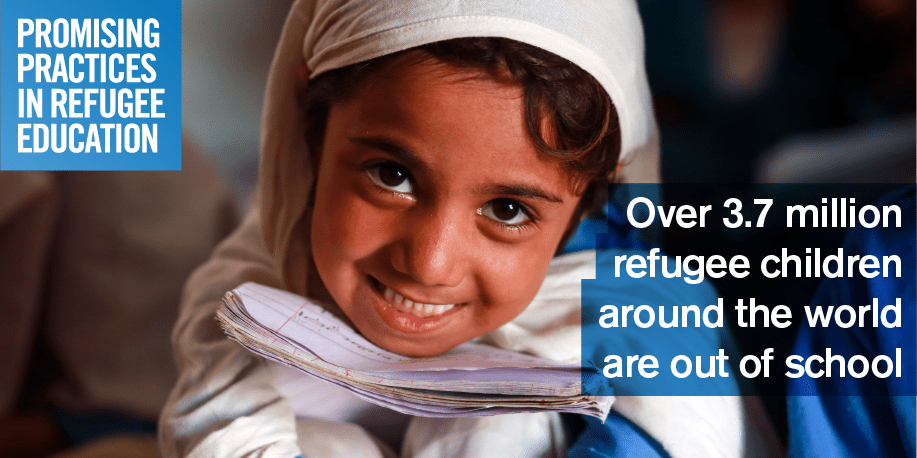
Leave no one behind
We need to learn from and scale up support for those countries that have taken the positive step forward in opening up their education systems to refugees. And provide more support to those that have yet to do so.
The UKFIET conference comes at a critical time to discuss these areas in the lead up to the Global Refugee Forum in December. Without a concerted effort to ensure every last refugee child and their host community peers has access to education the world will fall short of delivering the commitments in SDG4.

